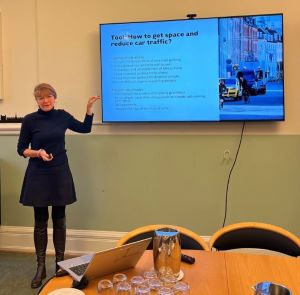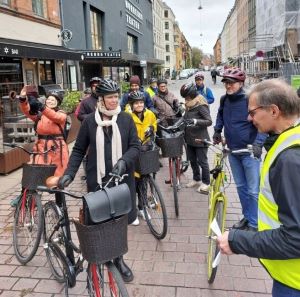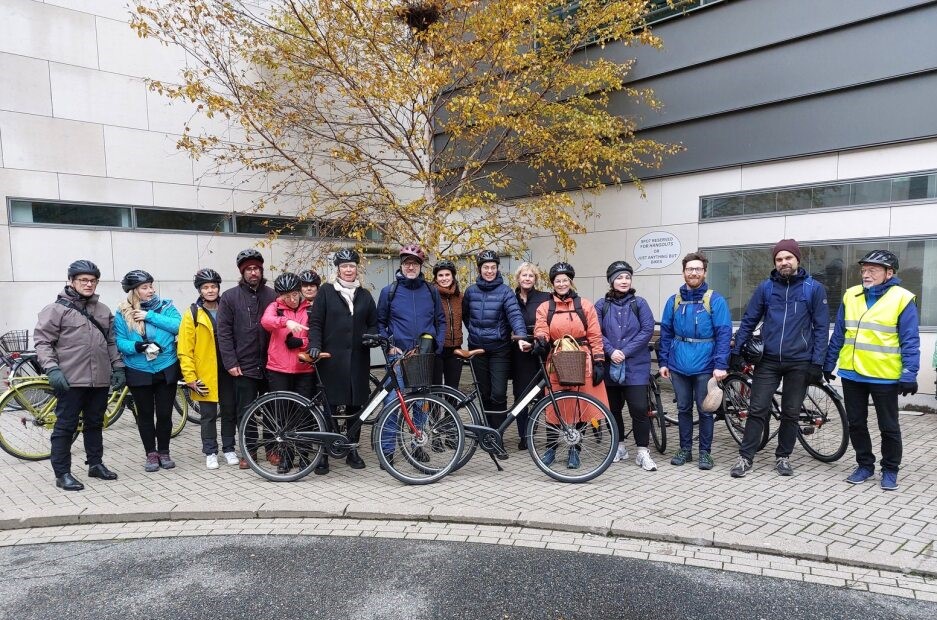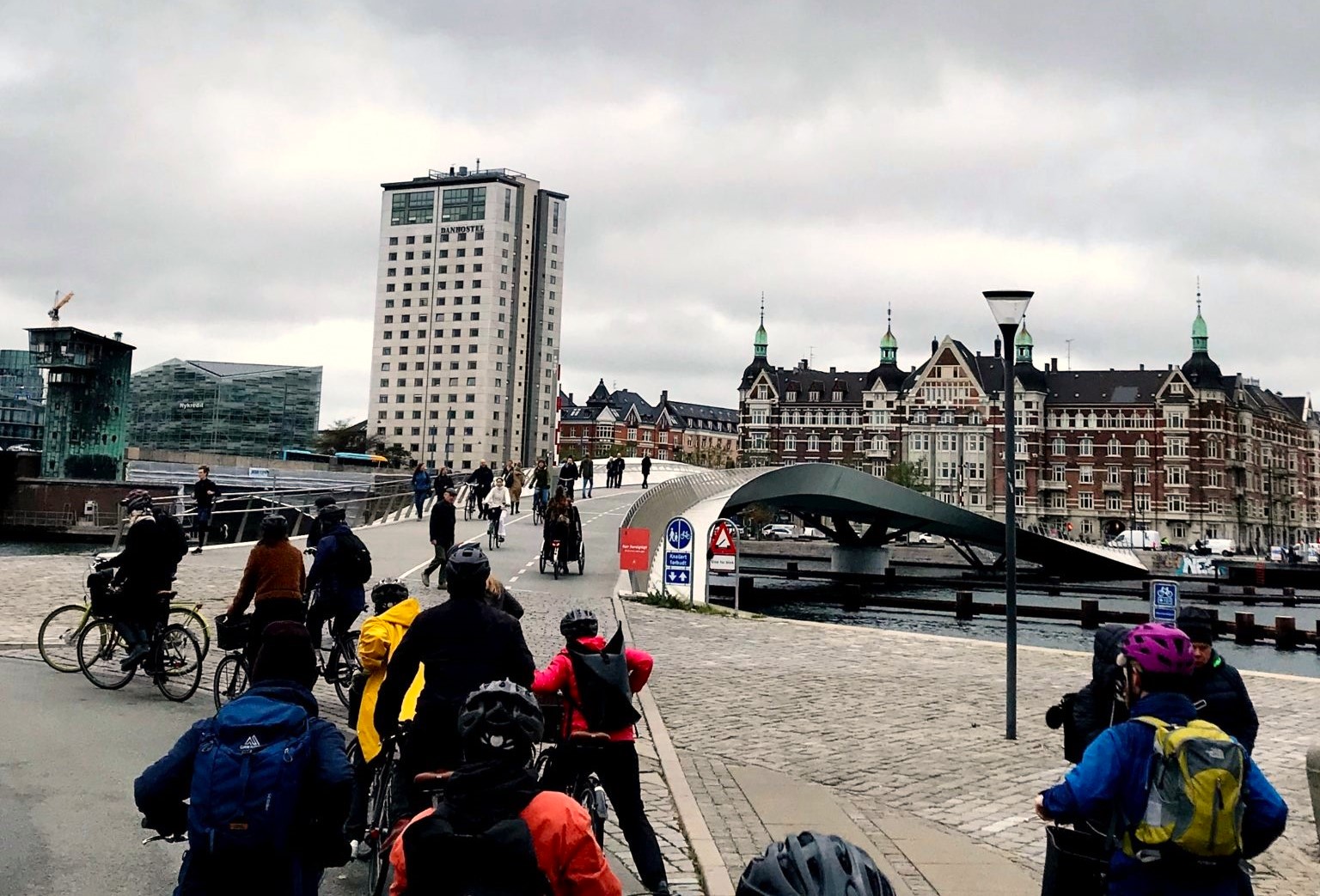Research study trip sparked new ideas on Nordic collaboration
Mistra SAMS research study trip to Lund and Copenhagen, gaining insights on sustainable mobility.
In October Mistra SAMS made a two days research study trip to Lund and Copenhagen, gaining insights and inspiration on urban sustainable mobility and accessibility. The study trip gave opportunity for place-based learning, finding out more about different mobility solutions and structures in the Nordic countries.
Walks and activities in both Lund and Copenhagen created space for conversation about opportunities and obstacles for a transition towards sustainable travel. All the organisations and people who welcomed us made this instructive and inspiring journey possible.
Avoid and shift
The first day of the research trip started in Lund, where researchers from Mistra SAMS and K2, Nationellt kunskapscentrum för kollektivtrafik held a joint research seminar on how to achieve avoid (reduce transport) and shift (change the mode of transport) measures for a sustainable transformation of the transport sector. The presentations also included research on mobility justice. These kind of measures contrast the “improve” (cleaner technology) approach, which is more dominant in the debate on sustainable travel.
Sustainable travel in the City of Copenhagen

The visit to the City Hall showed how Copenhagen is planning for sustainable travel and infrastructure and what the distribution of different modes of transport looks like in the city. Planners from different departments gave presentations on current initiatives and projects regarding public transport, bicycling and reduced car traffic, as well as methods for citizen involvement.
A nationally unified travel card
Visiting Rejseplanen & Rejsekortet A/S we learned how Denmark organize public transport with a unified travel card for the whole country. We were told about current strategies as well as how the service is planned to be developed in the future. Among other things it was interesting to learn how they think about the development of ticket and payment systems and how they reflect on travelers who, for various reasons, will not be connected online to use digital services.
Research exchange
At Aalborg University a research program similar to Mistra SAMS presented their results on new forms of shared mobility services and bicycling in different types of urban contexts. The presentation gave many important insights about the critical role of visibility in the local environment, of time and practical experience, and of working actively with social justice and inclusion. A work which presupposes a continuous critical reflection on whose mobility and whose everyday life we are including, not only in policy and planning but also in the research process.
The university visit was particularly valuable as the Danish researchers are grappling with similar challenges of equality and justice as those encountered by Mistra SAMS researchers, in their research on accessibility and mobility services.
Taking space from cars and giving it to bicycles

A joint bike ride took us from Søborg via Nørreport down to Sydhavnen. We were impressed by the width of the cycle lanes, how the surface felt to cycle on and the many different types of markings and information that make it easier for cyclists to navigate the urban and traffic environment. But we also noticed that there are a lot of cars in the city center. On the other hand, the wide cycle paths in the city center have actually been made possible by the fact that there are wide motorways to take the space from. Which makes it clear that a lot can be done with existing infrastructure, using existing surfaces in other ways.
Translating research results to policy
The study trip was completed with a visit to the green think tank CONCITO . We were introduced to how they work with translating research results into policy reports, proposals and communication for accelerating a green transition.
It was inspiring to hear their views on how change can be communicated to strengthen driving forces and ensure that concrete proposals are implemented. We look forward to continuing this dialogue and exchange.
Text: Jenny Rosen


